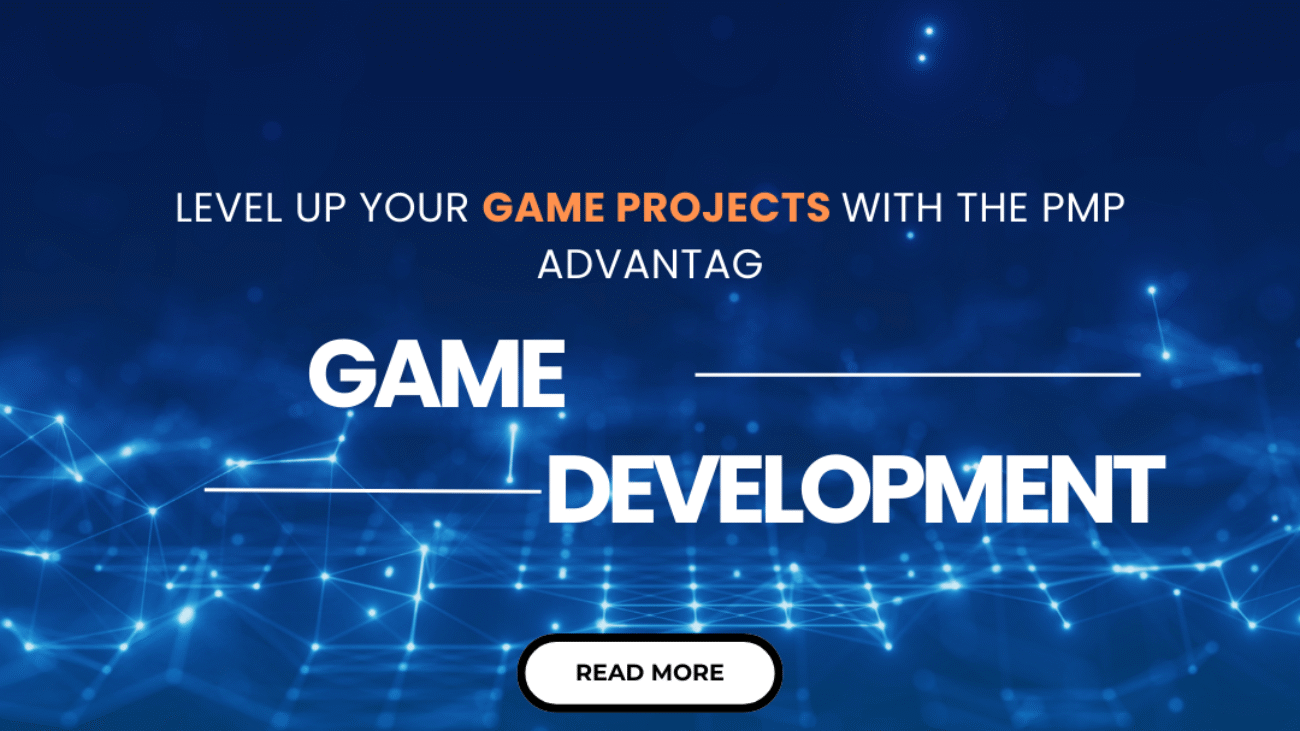In the fast-paced world of game development, creativity often takes center stage. Artists sketch immersive worlds, developers code intricate gameplay mechanics, and storytellers weave unforgettable narratives. Yet, behind every blockbuster release is something far less glamorous but equally essential — solid project management.

This is where the Project Management Professional (PMP) certification steps into the spotlight. Far from being a buzzword, PMP represents a proven framework for delivering complex projects on time, on budget, and with the highest quality. In the gaming industry, where delays can cost millions and player expectations evolve overnight, the PMP advantage can be the difference between a hit and a flop.
Why Game Development Needs Structured Project Management
Game creation isn’t just about great ideas; it’s about orchestrating diverse talents, technologies, and timelines into a cohesive final product. Without structure, even the most promising projects can fall victim to scope creep, misaligned priorities, or endless reworks.
Here’s why PMP-trained professionals thrive in this environment:
- Clear Scope Definition – Translating broad creative visions into measurable milestones.
- Time and Cost Control – Using earned value management (EVM) to track progress and avoid budget blowouts.
- Risk Anticipation – Identifying and mitigating issues like technology shifts, changing market demands, or sudden resource gaps.
- Stakeholder Alignment – Ensuring that designers, developers, publishers, and marketing teams all work toward the same goal.
How PMP Principles Translate to Game Development

The PMP framework follows a well-established set of process groups and knowledge areas, each with direct application in gaming.
- Initiating – Defining the game’s vision, objectives, and success criteria. Here, a PMP-certified lead ensures alignment between creative ambition and business strategy.
- Planning – Building a roadmap that integrates art, programming, audio, and QA workflows. Risk registers and resource allocation plans prevent future bottlenecks.
- Executing – Coordinating cross-functional teams to keep development sprints productive and focused. Agile principles often blend seamlessly with PMP processes here.
- Monitoring & Controlling – Tracking milestones, updating schedules, and ensuring quality standards are met before moving to the next phase.
- Closing – Managing launch readiness, handovers, and post-release patches while documenting lessons learned for future projects.
The PMP Edge: What It Brings to the Table
While game development already uses frameworks like Agile and Scrum, PMP adds an overarching strategic layer that ensures no piece of the puzzle is left unattended.
- Improved Predictability – Publishers and investors gain confidence in delivery timelines and budgets.
- Cross-Team Synergy – Artists, programmers, and designers collaborate more effectively when guided by structured processes.
- Higher Quality Outcomes – Testing, iteration, and launch phases are better planned, reducing post-release issues.
- Better Risk Management – From technology obsolescence to creative disagreements, risks are logged, assessed, and addressed proactively.
Real-World Example: From Chaos to a Playable Hit
Consider a mid-sized studio struggling with missed deadlines on an ambitious open-world RPG. After onboarding a PMP-certified project manager, they redefined scope, introduced milestone-based tracking, and aligned their creative and technical teams. Not only did they meet the revised launch date, but the game also received critical acclaim for polish and stability — something their previous titles lacked.
Future of PMP in Game Development
With gaming becoming more global, complex, and competitive, the demand for professionals who can unite creativity with execution discipline will only grow. PMP-certified managers won’t replace creative leads — instead, they’ll ensure that creative visions reach the market in the best form possible.
In an industry where delays can drain resources and innovation cycles are shortening, the PMP edge is not just valuable — it’s vital.
Final Thought:
The best games are more than code and graphics; they are the product of vision, coordination, and flawless execution. When project management meets play, the result isn’t just a game — it’s an experience players remember. And in that journey, PMP-certified leaders are the ultimate game-changers.
Created by Zain Malik | Blue Peaks Consulting

 Cart is empty
Cart is empty 
Add a Comment